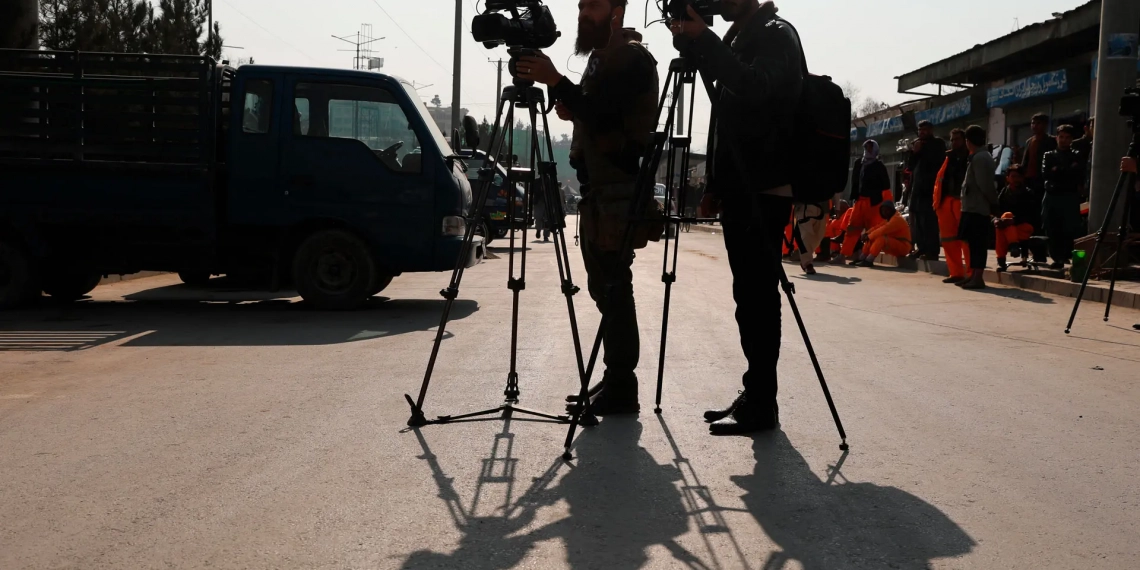Afghan media outlets are being forced to alter broadcasting content to mainly focus on humanitarian concerns, humanitarian aid, and educational programs with pre-approval required from the Taliban, said the Afghanistan Journalists Center (AFJC).
In a report published Saturday, the AFJC said the Taliban’s incursions on the media have increased in the first six months of this solar year (from March 22) compared to last year.
It warned that these practices are eroding trust of media reports and will not ultimately serve the Taliban.
Current affairs programs that used to challenge the government or status quo have been lost due to the severe restrictions on media workers and access to information, the AFJC said.
While on social media, there are crackdowns on journalists expressing criticism of Afghanistan’s situation or de facto government.
The report stated the Taliban’s efforts to control all media output have seen many journalists threatened and arrested.
In the six months from March to September this year, the AFGC reported there were at least 75 incidents that violated the freedom of journalists and media, including 33 arrests and 42 serious threats.
Most of the arrests were made by the Taliban’s General Department of Intelligence (GDI), the report sayid.
Other departments have also been involved in heavily threats towards journalists and media outlets, including the Ministry of Information and Culture.
The report noted that the Taliban had implicitly approved Afghanistan’s existing media laws and laws on access to information, but had said there would be “slight modifications”. The laws were to be amended by the Taliban leadership in Kandahar.
Since then, the Taliban has issued at least 13 instructions related to the media. These have not been slight modifications but wholesale changes that have gradually removed the rights and freedoms of the media.
AIJU called on the Taliban to end these practices saying the restrictions on the media and the violation of journalists’ legal rights have very negative consequences on Afghanistan’s awareness and progress.
The union urged the Taliban to revise its media policies, refrain from imposing unjustified and extra-legal demands on journalists and media, and provide an environment to work without fear and free from self-censorship.
.








